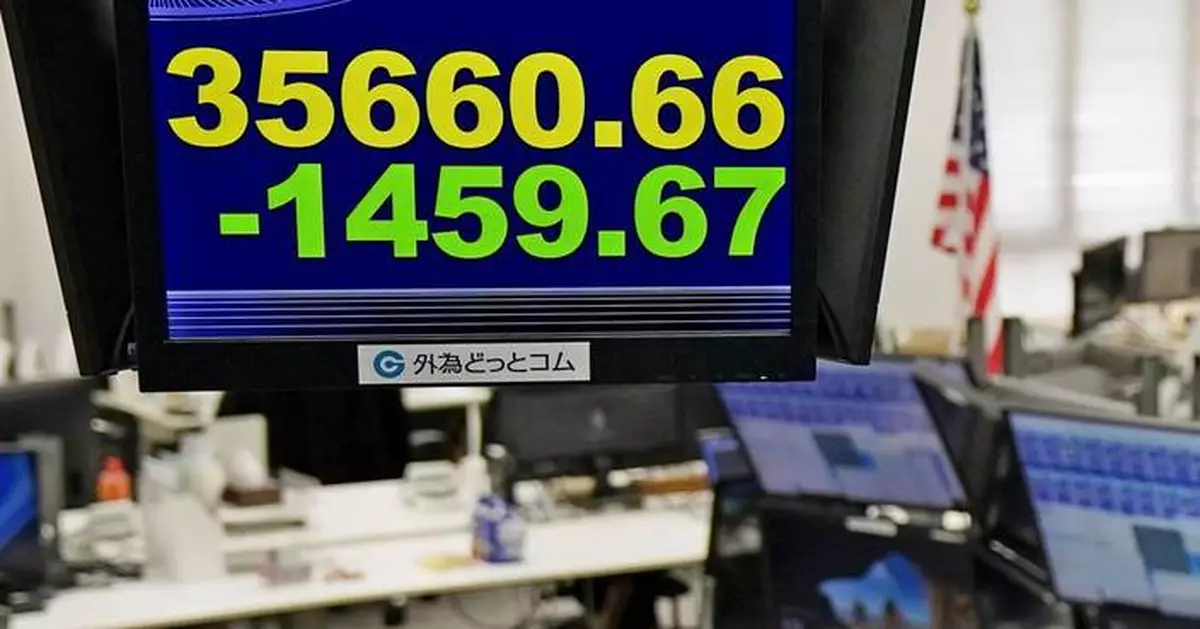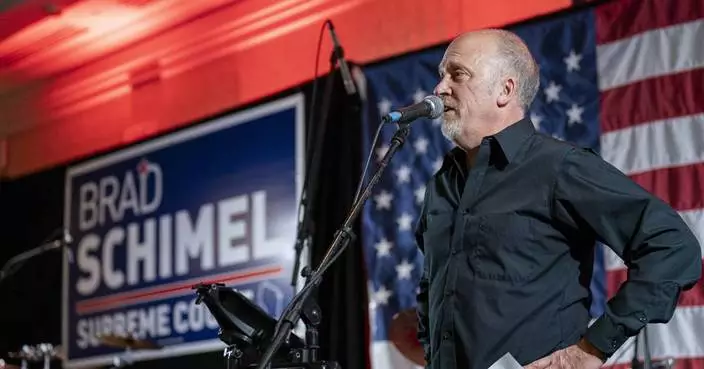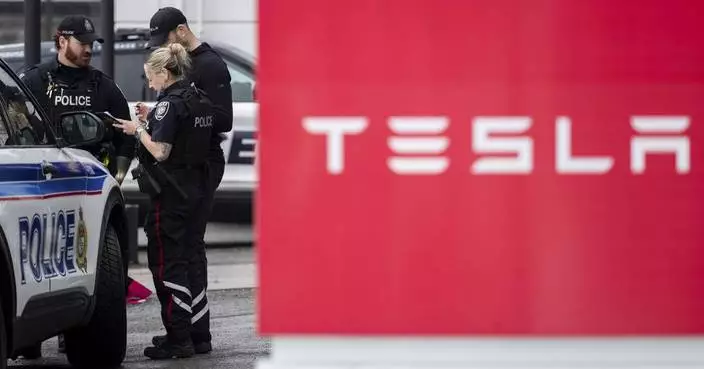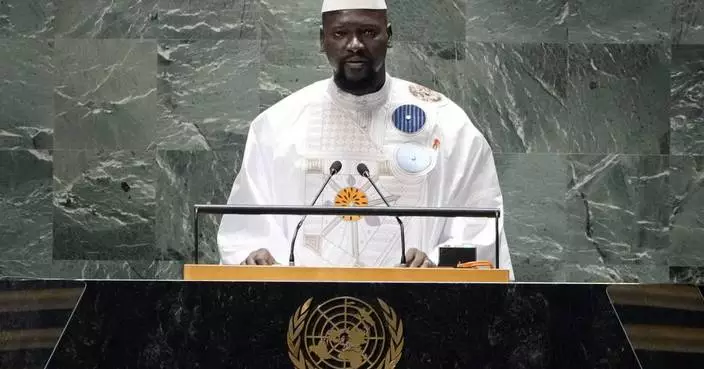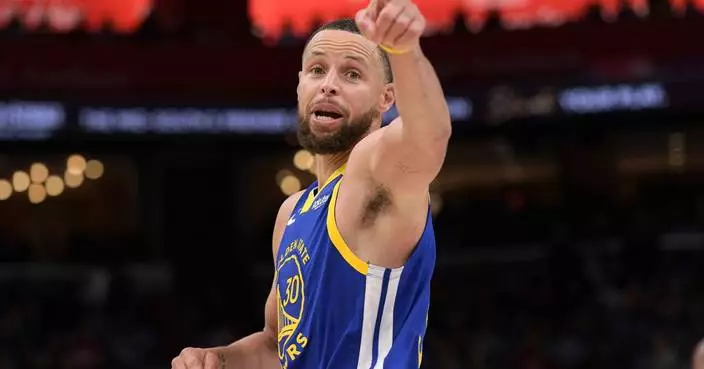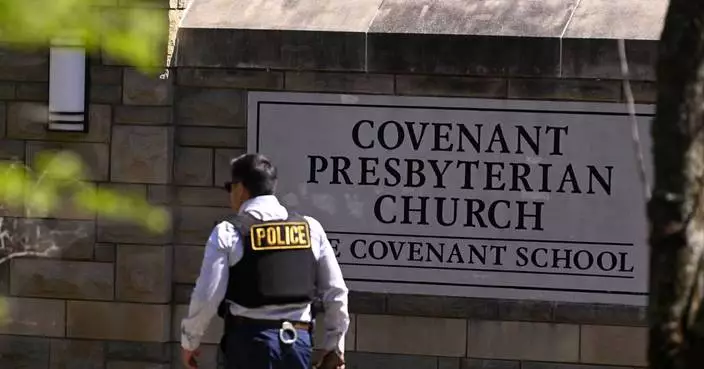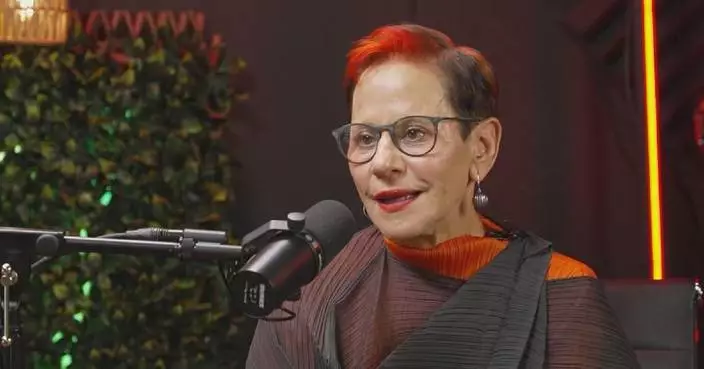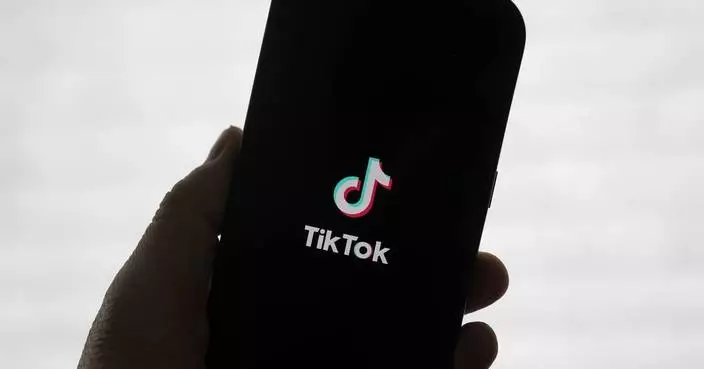NEW YORK (AP) — President Donald Trump’s fast-approaching “Liberation Day” sent stock markets swinging sharply worldwide on Monday.
On Wall Street, the S&P 500 rose 0.6% in another roller-coaster day, after being down as much as 1.7% during the morning. The reversal helped the index shave its loss for the first three months of the year to 4.6%, making it the worst quarter in two-and-a-half years.
Click to Gallery
A person works on the floor at the New York Stock Exchange in New York, Monday, March 31, 2025. (AP Photo/Seth Wenig)
A person works on the floor at the New York Stock Exchange in New York, Monday, March 31, 2025. (AP Photo/Seth Wenig)
People work on the floor at the New York Stock Exchange in New York, Monday, March 31, 2025. (AP Photo/Seth Wenig)
People work on the floor at the New York Stock Exchange in New York, Monday, March 31, 2025. (AP Photo/Seth Wenig)
A currency trader walks by the screens showing the foreign exchange rate between U.S. dollar and South Korean won, left, and the Korean Securities Dealers Automated Quotations (KOSDAQ) at a foreign exchange dealing room in Seoul, South Korea, Monday, March 31, 2025. (AP Photo/Lee Jin-man)
The screens showing the Korea Composite Stock Price Index (KOSPI), left, the foreign exchange rate between U.S. dollar and South Korean won and the Korean Securities Dealers Automated Quotations (KOSDAQ) are seen at a foreign exchange dealing room in Seoul, South Korea, Monday, March 31, 2025. (AP Photo/Lee Jin-man)
An electronic stock board shows that Nikkei stock average dropped over 1,500 Japanese yen in Tokyo Monday, March 31, 2025. (Kyodo News via AP)
A currency trader works under an electronic stock board at a foreign currency trading firm in Tokyo Monday, March 31, 2025. (Kyodo News via AP)
The Dow Jones Industrial Average also swerved higher after erasing an initial loss, and it climbed 417 points, or 1%. Slides for Tesla, Nvidia and other influential Big Tech stocks, though, sent the Nasdaq composite down 0.1%.
Such neck-twisting turns have become routine for the U.S. stock market recently because of uncertainty about what Trump will do with tariffs — and by how much they will worsen inflation and grind down growth for economies. Wall Street’s swings followed a sell-off that spanned the world earlier Monday as worries built about the effects of the tariffs that Trump says will bring manufacturing jobs back to the United States.
In Japan, the Nikkei 225 index dropped 4%. South Korea’s Kospi sank 3%, and France’s CAC 40 fell 1.6%.
Instead of stocks, prices strengthened for things considered safer bets when the economy is looking shaky. Gold rose again to briefly crest $3,160 per ounce.
Prices for Treasury bonds also climbed, which in turn sent their yields down. The yield on the 10-year Treasury fell to 4.21% from 4.27% late Friday and from roughly 4.80% in January.
On Wednesday, the United States is set to begin what Trump calls “ reciprocal ” tariffs, which will be tailored to match what he sees is the burden each country places on his, including things like value-added taxes. Much is still unknown, including exactly what the U.S. government will do on “Liberation Day.”
At Goldman Sachs, economists expect Trump to announce an average 15% reciprocal tariff. They also raised their forecast for inflation and lowered it for U.S. economic growth for the end of the year.
They now see a 35% chance of recession in the next year, up from an earlier forecast of 20%, “reflecting our lower growth forecast, falling confidence, and statements from White House officials indicating willingness to tolerate economic pain,” according to Goldman Sachs economist David Mericle.
If the April 2 tariffs end up being less onerous than investors fear — maybe Trump includes no additional tariff increases on China, for example — stocks could rally. But if they end up being a worst-case scenario, which gets businesses so fearful that they start cutting their workforces, stocks could sink much further.
Of course, there’s also the chance that April 2 does little to clear the uncertainty. It could end up being a “stepping stone for further negotiations” instead of a “clearing event” for the market, according to Michael Wilson and other strategists at Morgan Stanley.
“This means policy uncertainty and growth risks are likely to persist — it’s a question of to what degree,” Wilson wrote in a report.
One worry is that even if Trump’s tariffs end up being less harsh than feared, all the uncertainty created by them alone could cause U.S. households and businesses to freeze their spending, which would hurt an economy that had been running at a solid pace to close last year.
Either way, some familiar names were among Wall Street’s hardest hit on Monday.
Tesla fell 1.7% to bring its loss for the year so far to 35.8%. It’s been one of the year’s worst performers in the S&P 500 in large part because of fears that the electric-vehicle maker’s brand has become too intertwined with its CEO, Elon Musk.
Musk has been leading U.S. government efforts to cut spending, making him a target of growing political anger, and protests have swarmed Tesla showrooms as a result.
Other Big Tech stocks also struggled. They’ve been at the sell-off’s center in large part because of criticism that their stock prices had become too expensive. Critics pointed to how their prices rose faster than their already quick-growing profits in recent years.
Nvidia, which has ridden the frenzy around artificial-intelligence technology to become one of Wall Street’s most influential stocks, fell 1.2% to bring its loss for the year so far to 19.3%.
On the winning side of Wall Street was Mr. Cooper, which jumped 14.5% after the home loan servicer said it’s being bought by mortgage company Rocket in an all-stock deal valued at $9.4 billion. The deal comes just weeks after Rocket acquired real estate listing company Redfin, and Rocket’s stock fell 7.4%.
Warren Buffett’s Berkshire Hathaway rose 1.2% and was one of the strongest forces lifting the S&P 500. The parent of GEICO and other companies said earlier this year it’s sitting on $334.2 billion in unused cash. Such a large amount could indicate Buffett, who’s famous for buying when prices are low, may see little worth purchasing in a stock market that critics had called too expensive.
Newsmax surged 735% in a dizzying first day of trading for the stock of the news company. Its price was so volatile that trading of its stock was briefly halted a dozen times through the day.
All told, the S&P 500 rose 30.91 points to 5,611.85. The Dow Jones Industrial Average climbed 417.86 to 42,001.76, and the Nasdaq composite fell 23.70 to 17,299.29.
AP Writers Junzhe Jiang and Matt Ott contributed.

A person works on the floor at the New York Stock Exchange in New York, Monday, March 31, 2025. (AP Photo/Seth Wenig)
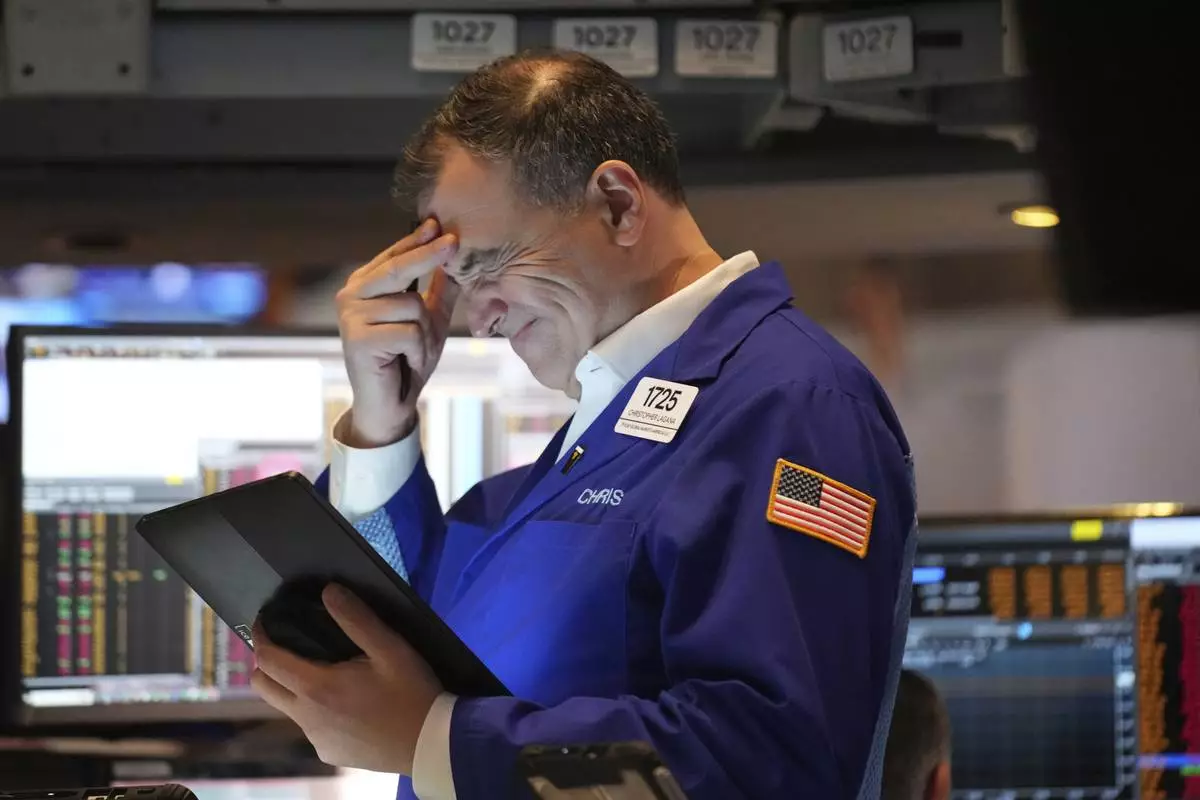
A person works on the floor at the New York Stock Exchange in New York, Monday, March 31, 2025. (AP Photo/Seth Wenig)
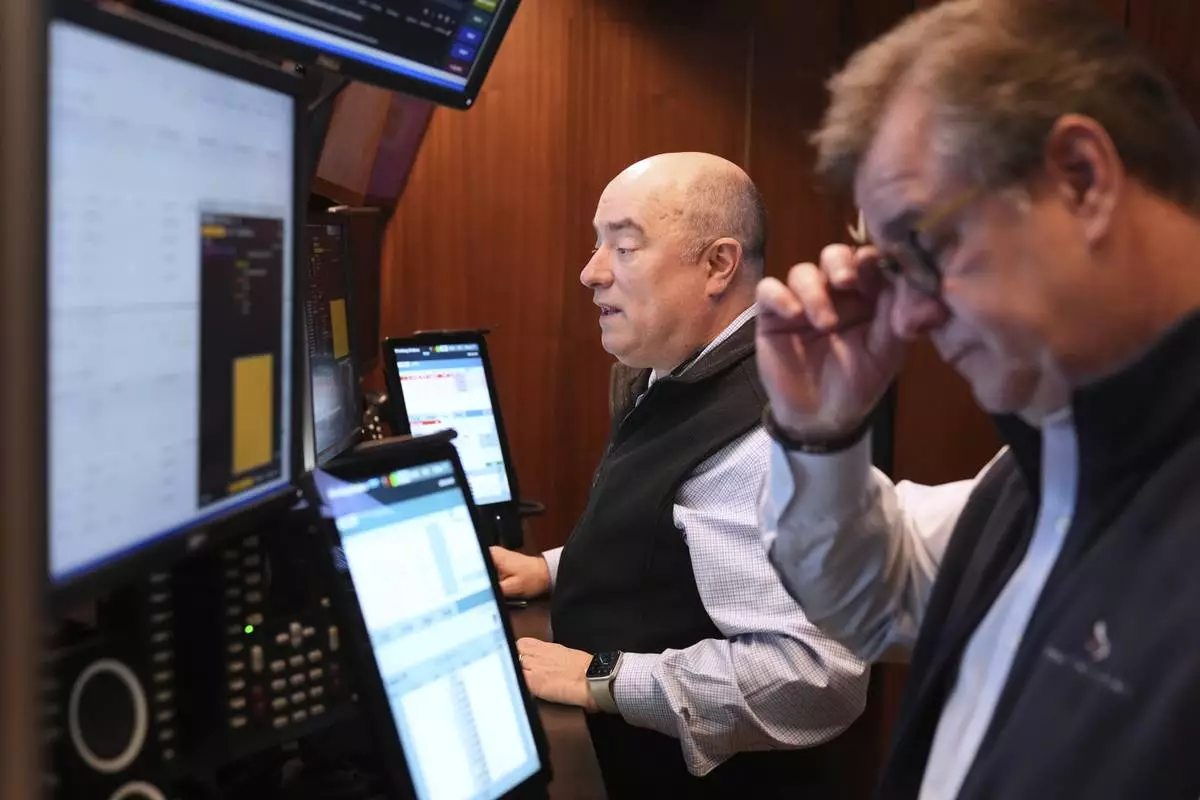
People work on the floor at the New York Stock Exchange in New York, Monday, March 31, 2025. (AP Photo/Seth Wenig)
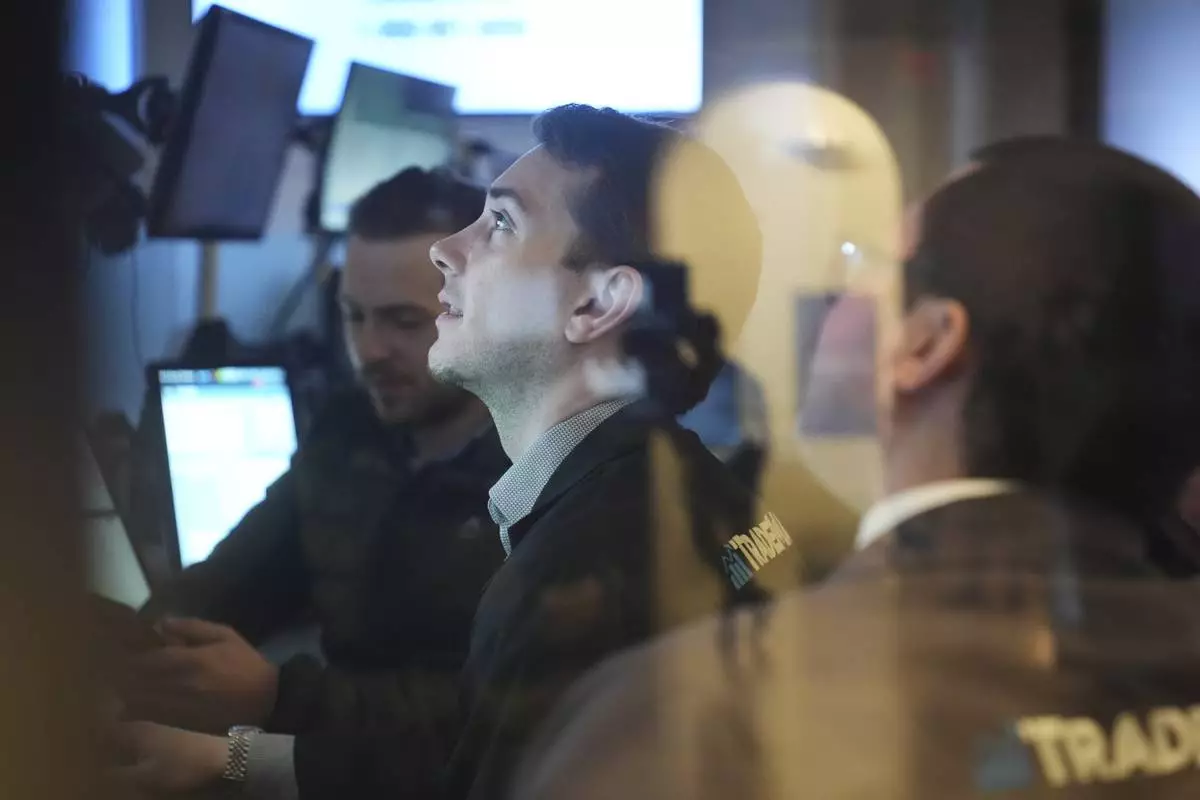
People work on the floor at the New York Stock Exchange in New York, Monday, March 31, 2025. (AP Photo/Seth Wenig)

A currency trader walks by the screens showing the foreign exchange rate between U.S. dollar and South Korean won, left, and the Korean Securities Dealers Automated Quotations (KOSDAQ) at a foreign exchange dealing room in Seoul, South Korea, Monday, March 31, 2025. (AP Photo/Lee Jin-man)

The screens showing the Korea Composite Stock Price Index (KOSPI), left, the foreign exchange rate between U.S. dollar and South Korean won and the Korean Securities Dealers Automated Quotations (KOSDAQ) are seen at a foreign exchange dealing room in Seoul, South Korea, Monday, March 31, 2025. (AP Photo/Lee Jin-man)
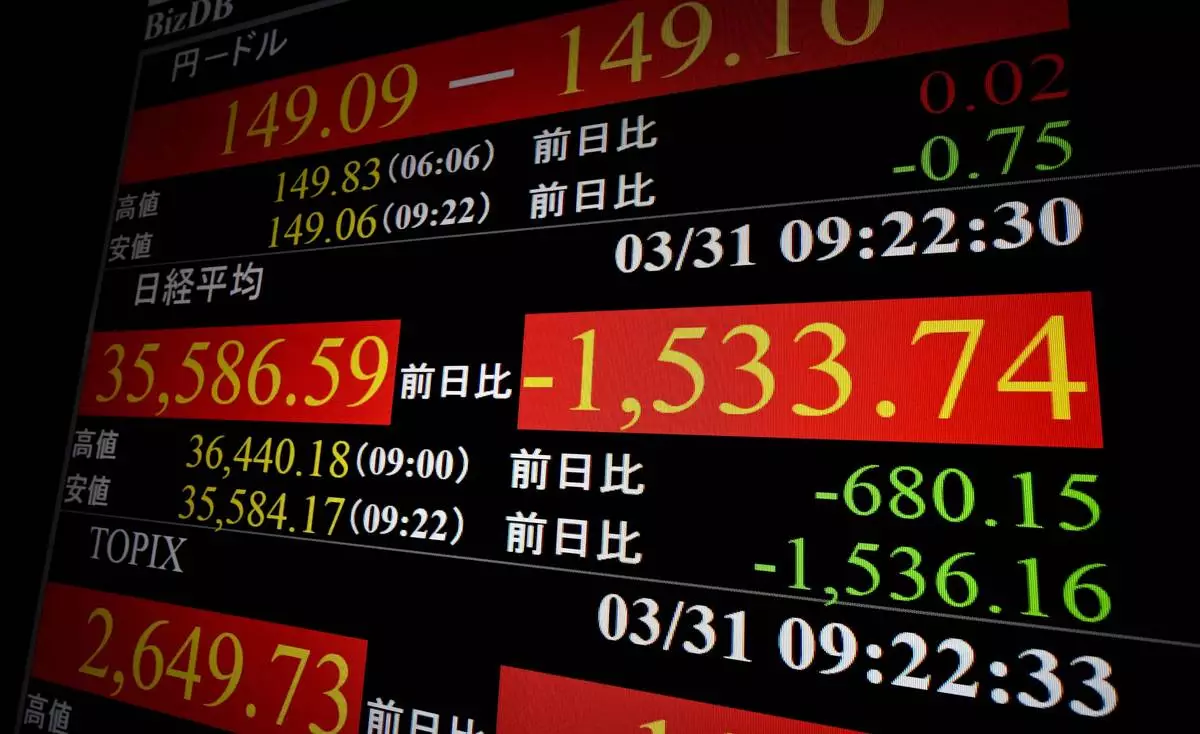
An electronic stock board shows that Nikkei stock average dropped over 1,500 Japanese yen in Tokyo Monday, March 31, 2025. (Kyodo News via AP)
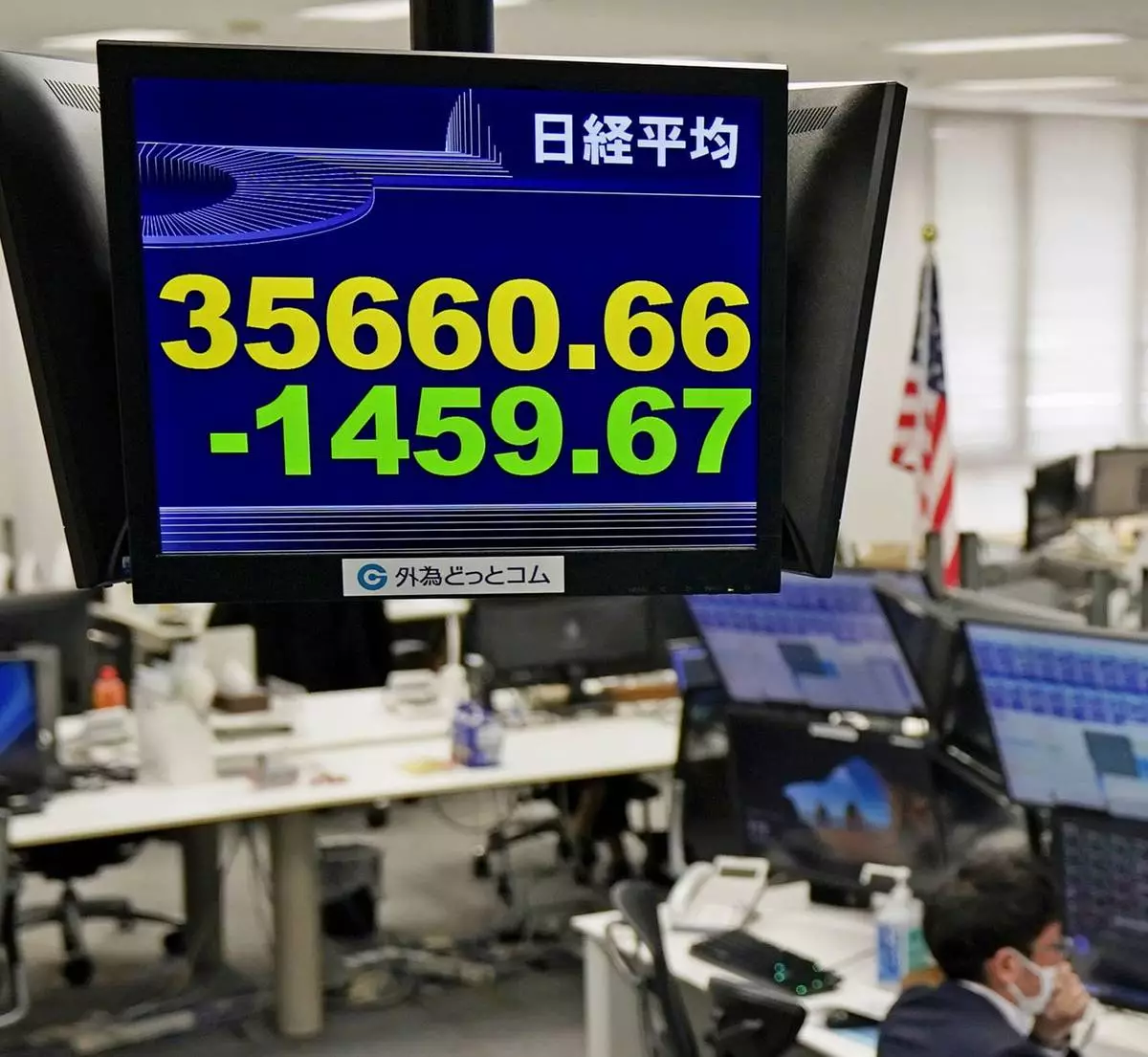
A currency trader works under an electronic stock board at a foreign currency trading firm in Tokyo Monday, March 31, 2025. (Kyodo News via AP)
NEW YORK (AP) — A federal judge dismissed New York City Mayor Eric Adams’ corruption case on Wednesday, acquiescing to the Justice Department's extraordinary request to set aside criminal charges so the Democrat could help with President Donald Trump’s immigration crackdown.
The judge, though, denied prosecutors the ability to potentially bring the criminal case back after the mayoral election. Judge Dale E. Ho’s order to dismiss the case “with prejudice” spares Adams from having to govern in a way that pleases Trump, or potentially risk having the Republican's Justice Department revive the charges.
“In light of DOJ’s rationales, dismissing the case without prejudice would create the unavoidable perception that the Mayor’s freedom depends on his ability to carry out the immigration enforcement priorities of the administration, and that he might be more beholden to the demands of the federal government than to the wishes of his own constituents,” the judge wrote.
“To be clear, the Court again emphasizes that it does not express any opinion as to the merits of the case or whether the prosecution of Mayor Adams ‘should’ move forward," Ho wrote.
Ho acknowledged that his power in this situation was limited, writing that courts cannot “force the Department of Justice to prosecute a defendant.”
“That is by design. In our constitutional system of separation of powers, a court’s role in a criminal case is to preside over the matter — not to decide whether the defendant should be prosecuted,” he wrote.
Ho’s decision came just days after Adams’ attorney urged the judge to issue a ruling in the case, noting that Adams has a busy reelection campaign ahead and was nearing a deadline to submit petitions to get on the city’s primary ballot. It follows a legal drama that roiled the Justice Department, created turmoil in City Hall and left Adams’ mayoralty hanging by a thread amid questions about his political independence and ability to govern.
Several prosecutors in New York and Washington resigned rather than carry out the Justice Department's directive to drop the case against Adams. Gov. Kathy Hochul, a fellow Democrat, pondered whether to remove Adams from office but decided instead to propose new oversight for city government.
At a Feb. 19 hearing, Adams told Ho: “I have not committed a crime.”
Adams had pleaded not guilty to bribery and other charges after a 2024 indictment accused him of accepting illegal campaign contributions and travel discounts from a Turkish official and others — and returning the favors by, among other things, helping Turkey open a diplomatic building without passing fire inspections.
The case, brought during President Joe Biden's administration, was on track for an April trial until Trump’s Justice Department moved to drop it. Ho delayed the trial and appointed former U.S. Solicitor General Paul Clement to assist him in deciding what to do.
The Justice Department had wanted the option to revive the case in the fall. Adams’ lawyers wanted it gone for good.
In a written submission on March 7, Clement told Ho he had no choice under the law but to dismiss the case. But he recommended that the judge reject the Justice Department’s request to be able to refile them after this year’s mayoral election, which would leave “a prospect that hangs like the proverbial Sword of Damocles over the accused.”
The decision comes with three months to go until a Democratic primary that is likely to chose the city's next mayor.
Adams faces a large field of challengers, including former Gov. Andrew Cuomo and several Democrats who say he’s now too indebted to Trump for New Yorkers to be sure he’ll prioritize their interests. Adams has said he's “solely beholden to the 8.3 million New Yorkers that I represent, and I will always put this city first.”
As recently as Jan. 6, the assistant U.S. attorneys in New York who were prosecuting Adams wrote in court papers that they continued to “uncover additional criminal conduct by Adams.” But a month later, their new superiors in Washington decided to abandon the case.
In court filings and a hearing, acting Deputy Attorney General Emil Bove has said he was "particularly concerned about the impact of the prosecution on Mayor Adams’ ability to support” Trump’s immigration objectives. Bove also has questioned the prior administration’s motives in pursuing Adams, who had criticized then-President Joe Biden’s handling of an influx of migrants.
The Trump administration’s acting U.S. attorney in New York, Danielle Sassoon, resisted Bove’s order, saying she couldn’t defend a dismissal linked to political considerations. Sassoon a
Sassoon and several other career prosecutors and supervisors of public corruption cases quit rather than follow Bove’s order. Bove put other New York-based prosecutors involved in the Adams case on a paid leave.
Bove and two senior Justice Department lawyers ultimately signed court papers requesting a dismissal with the option to refile the charges after the November election.
After four of Adams’ top deputies at City Hall decided to resign, Hochul briefly considered taking the unprecedented step of ousting a New York City mayor. She ultimately concluded it would be undemocratic and disruptive to do so.
Adams, a retired police captain and former state lawmaker and Brooklyn official, was elected in 2021 as a centrist Democrat in one of the United States’ liberal strongholds. But since his indictment in September, Adams has cultivated a warmer relationship with Trump, telling his staff not to criticize the president publicly and making media appearances with administration officials.
Adams insists that just he’s looking out for the city by having a working relationship with the administration.
Associated Press reporter Anthony Izaguirre contributed.
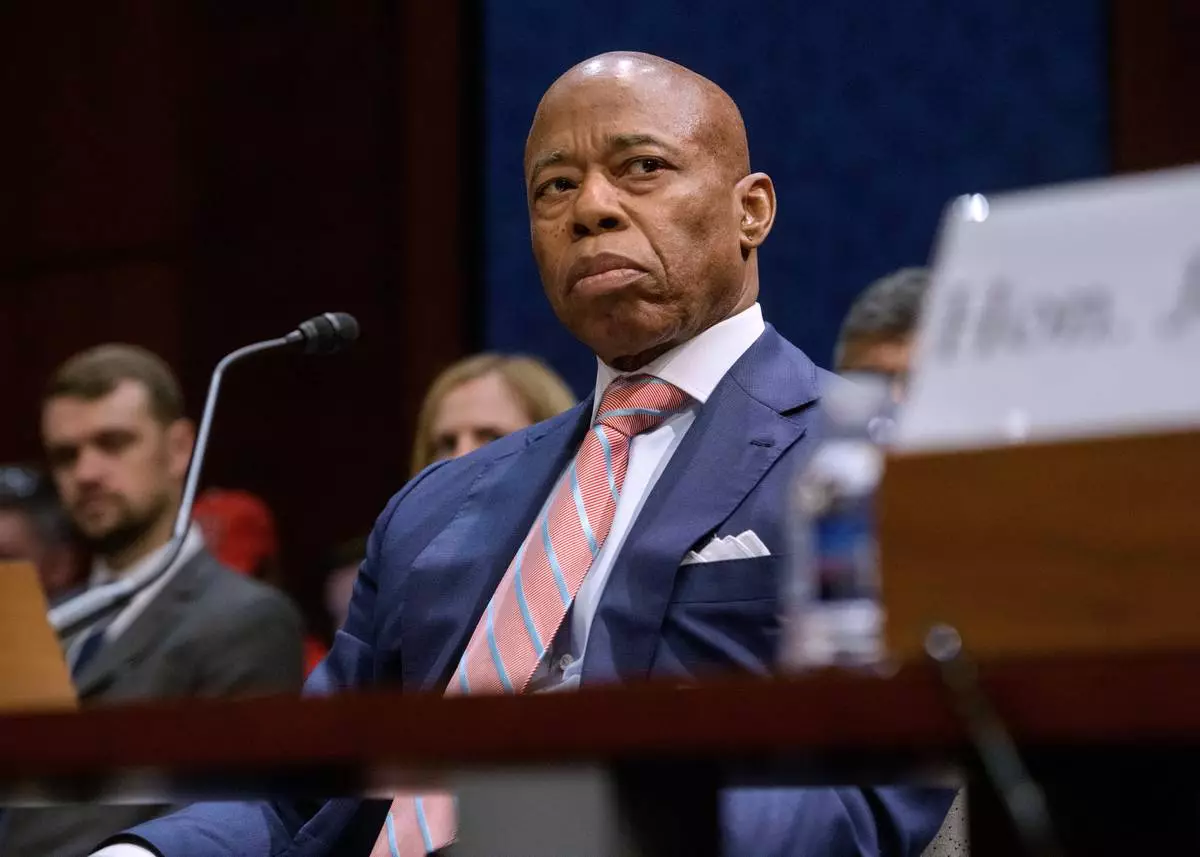
FILE - New York City Mayor Eric Adams appears before a House Committee on Oversight and Government Reform hearing with Sanctuary City Mayors on Capitol Hill, Wednesday, March 5, 2025, in Washington. (AP Photo/Rod Lamkey, Jr., file)










